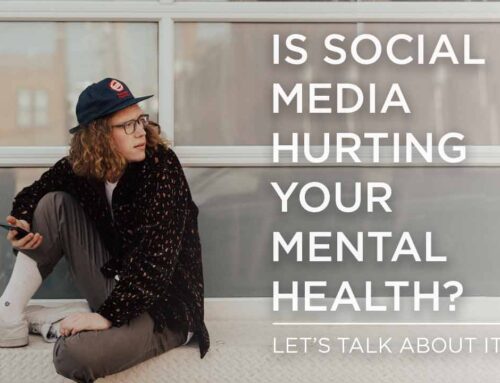Understanding Elderly Mental Health: Common Root Causes of Stress and How We Can Help
Over the last decade, mental health has become more prioritized across the world. With this societal shift in attitude, new initiatives and resources have arisen to help different types of people from different populations.
Sadly, however, there is one particular population that has largely been left behind when it comes to mental health attention and resources. Specifically, older adults are currently facing a slew of mental health problems that aren’t actively being solved.
Fortunately, bringing more awareness to this problem can help improve the lives of countless older adults. In particular, spreading awareness about the main causes of mental health ailments among the elderly can be incredibly impactful.
Here is understanding elderly mental health and the common root causes of stress and how we can help.
The Main Causes of Stress Among Older Adults
To truly understand mental health in older adults, it’s helpful to look at the key root causes of stress among this population. Having more awareness around these specific causes can make it easier to find solutions that help bolster elderly mental health care and resources.
Some of the main causes of stress for older adults include:
- Loneliness: Sadly, many older adults suffer from extreme feelings of isolation. This is particularly true for older adults whose spouses and life partners have passed away. In addition, many older adults lack meaningful and consistent social activities in their lives, which all humans typically need to feel content and fulfilled.
- The Internet: Though it may not seem like an obvious cause of stress, the Internet and digital technology are huge stressors among older adults. One reason for this is a lack of digital literacy and understanding of this technology which leaves many older individuals feeling left out. Another key reason for this is that many older adults are victims of cybercrime, such as phishing scams, which can leave them financially ruined and ashamed.
- Illnesses and health ailments: Unfortunately, most older adults will experience some form of health ailment. This can have a slew of negative effects such as a decrease in mobility, chronic pain, and an inability to concentrate. As a result of these physical effects, many older adults feel higher levels of stress and irritability that can have a significantly negative impact on their mental health.
- Financial problems: While some older adults have enough saved for retirement, many are not so lucky. In addition, given the vulnerability of older adults in our society, many fall victim to scams which can negatively impact their financial well-being. As a result of these events, many older adults experience chronic stress about their finances.
How We Can Help
Though skyrocketing instances of mental health problems among older adults are disheartening, things don’t have to stay this way. Understanding what changes can be made to improve this situation is key to cultivating a better and more robust society.
Here are ways that we can help solve the elderly mental health crisis.
- Educating older adults about mental health: Many older adults are unaware that their habits are having a significantly negative impact on their mental health. Teaching older adults tips for reducing stress, such as eating well, sleeping better, and spending more time with friends, can make a huge impact on this population.
- Increasing home care resources: Home care is incredibly beneficial for older adults. From increasing the amount of social interactions they experience to reducing stress about self-care and health ailments, this type of help needs to be prioritized in today’s world. Whether this type of care comes in the form of a home health nurse, a family nurse practitioner, or a cleaning helper, it can help solve the problem of increasingly prevalent mental health problems.
- Increasing spaces and resources for social connections: One of the most powerful ways to improve the mental health states of the older adult population in America is increasing spaces and resources for social connections. Whether this is finding volunteers to check in on people or providing spaces for older adult meet-ups, these can significantly improve mental health among older adults.
The Elderly Mental Health Crisis Can Be Solved
Though pervasive mental health ailments among older adults may seem like an insurmountable problem, there are ways that we, as a society, can help. From educating older adults about ways to decrease stress to increasing home care resources, many solutions exist that can help put an end to this difficult problem.
Hopefully, as time goes on, more attention will be brought to this problem so older adults across the country can thrive.





